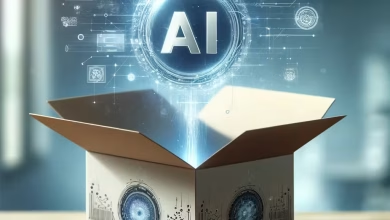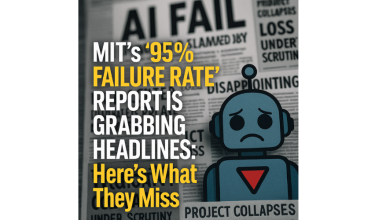CNC machineries have revolutionized the industry landscape by changing the way products are created and manufactured. Precision is at the core of, CNC (Computer Numerical Control) technology allows machines to accomplish intricate work with little involvement from humans. As the world of industry continues to grow as do the realms of CNC machine machining.
In the present, we are at the edge of amazing technological advancements fueled by automation and artificial intelligence (AI). What does this mean for companies and operators? We’ll look at how these advances will alter the course of CNC manufacturing and what that will mean for cost within a constantly changing market.
Current State of CNC Machining
CNC-machined parts have advanced significantly over the past several years. Nowadays, it is in the forefront of high-end manufacturing. Modern computer technology allows machines to produce intricate designs with amazing precision.
Modern CNC machines are fitted with cutting-edge software, which improves performance and functionality. It allows companies to create complex components in a short time, which reduces the time to turn around and cost associated to manufacturing.
Multi-axis machine tools is a different revolution. It allows for a more adaptable manufacturing techniques, which allows operators to make items using a variety of angles without repositioning the materials.
Although traditional techniques still have importance, numerous industries are shifting to CNC manufacturing due to its capability to speed up the process. This means that the quality control process becomes easier which means tighter tolerances as well as increased product reliability in the face of the increasing demand in various fields including automotive engineering and aerospace.
Automation in CNC Machining
Automation is changing CNC manufacturing at a fast rate. CNC machines can perform tasks without human intervention. This change not only increases productivity but also improves accuracy.
Automated systems minimize the risk of making mistakes which typically result through manual procedures. They simplify processes and allow producers to improve their production without losing quality.
The use of advanced robotics is becoming more common in shop floors. They handle everything from the loading of materials to inspection. They free skilled employees for more challenging tasks.
Furthermore the automated CNC machines allow for flexibility during production runs. They are able to easily change between various projects and adapt rapidly to changing market requirements.
As the field of automation grows as does the approach to implement it. Companies must keep up by investing in technologies which optimizes workflows and decreases machine costs through CNC while enhancing the quality of output and consistency.
Advancements in AI for CNC Machining
Artificial Intelligence is changing CNC machining in a variety of ways. Through the integration of machine learning technology, CNC manufacturers will improve efficiency and precision in ways that have never been before.
AI-driven systems analyse huge amounts of information from operations in the past. They spot patterns that human operators might miss. This results in better decision-making throughout the production process.
The concept of predictive maintenance is a key improvement. AI is able to predict potential machine malfunctions through monitoring performance metrics at a real-time rate. This can significantly cut down time and decreases overall CNC machine cost.
Furthermore, the automation that is driven by AI can allow for the use of adaptable machining strategies. The machines can alter their settings in real-time according to the material’s properties or environmental variables, providing the best results with minimum loss.
With the advancement of these technologies further, they are likely to bring more improvements in the speed of customization and efficiency throughout the business. Incorporating AI will not just boost efficiency, but also establishes the new standards for the quality of manufacturing across various areas.
Impact on the Manufacturing Industry
The effect of CNC cutting and machining in the manufacturing sector is significant. With the advancement of technology, it alters the way production is conducted and improves productivity.
By integrating automation in CNC machines, companies have improved precision and lower errors. This results in higher-quality items that are in line with the most stringent industry standards.
Additionally, cost-efficiency can be an important benefit. The companies can cut down on production while increasing efficiency and thereby reducing CNC cost of machining.
The advancement of AI is further transforming the landscape. Intelligent algorithms can optimize the paths of tools and anticipate maintenance requirements to ensure that machines function without a hitch.
This change isn’t limited to big corporations, but also small companies have access to the latest technology previously unobtainable. The ability to compete now on the global stage without significant investments in conventional manufacturing techniques.
Once these techniques become mainstream and widespread, they will redefine the limits of what is possible for production capability across different sectors.
Job Market and Training for Future CNC Operators
Automation and AI transform the world of CNC manufacturing and job opportunities, the market for CNC machining changes. Future CNC operators will require an array of skills in technical areas as well as the ability to adapt to the ever-changing environment.
Programs for training are growing to encompass the latest technology. Classes now include automating systems and programming, in addition to traditional methods of machining. It is a way to ensure that students are equipped with the necessary skills needed for cutting-edge machineries.
Hands-on experience remains crucial. Training and internships help fill the gaps between knowledge and application. Employers are attracted to candidates with an understanding of both machines operated by humans as well as their automatized counterparts.
The soft skills of problem-solving as well as the ability to think critically are getting more crucial too. Operators might be confronted with difficult issues arising as a result of machine learning algorithms, or unexpected production problems.
Education institutions need to be able to keep up with the demands of industry, establishing courses that reflect the shifts in workforce and technology.
Predictions for the Future of CNC Machining
In the near future to the future, the world of CNC machine machining will change rapidly. Integration of robotics with advanced technology can streamline processes in production which will reduce downtime as well as increase accuracy.
Innovative technologies, such as Generative design have the potential to transform the process of making parts. Designers will use algorithms to improve designs in terms of the weight, strength and efficiency of the material.
Additionally, cloud computing is expected to serve a crucial role to enable real-time sharing of data between devices. The connectivity will be used to develop predictive maintenance plans which reduce the cost of interruptions.
The sustainability initiatives can also affect the way we conduct business in the future. Green materials and efficient machines might alter industry norms.
As AI gets more advanced and sophisticated, we can expect machines to can learn from their operations with no any human involvement. This could not just improve productivity, but it could also trigger entirely new models of manufacturing.
Conclusion
CNC machineries have advanced significantly from the time it was first introduced. Thanks to the speedy advancements in technology, it’s evident that AI and automation are going to play a major role in moving ahead. The advancements in technology promise to increase productivity, decrease cnc machine expenses, and increase the quality of products manufactured.
In the future the future, it is crucial for business professionals to change and adapt to the changes. It is possible that the market for jobs will change with the development of new skills and this will present potential to grow. Education programs that focus on the latest CNC techniques will be vital to prepare the workforce of the future.
The future is predicted to be one in which speed and precision are incomparable. The adoption of these technologies could transform manufacturing the way we think of it now. Future manufacturing isn’t just focused on machines, but developing smarter ways to make advancement across a variety of industries.
The evolution of CNC machining is continuing to progress shaping the industries of all nations and paving the way to an intelligent and automated future.




